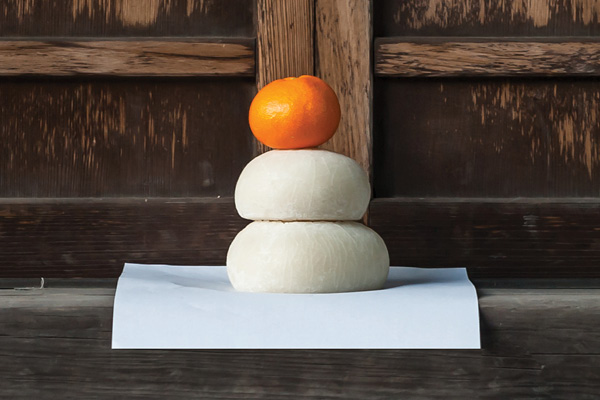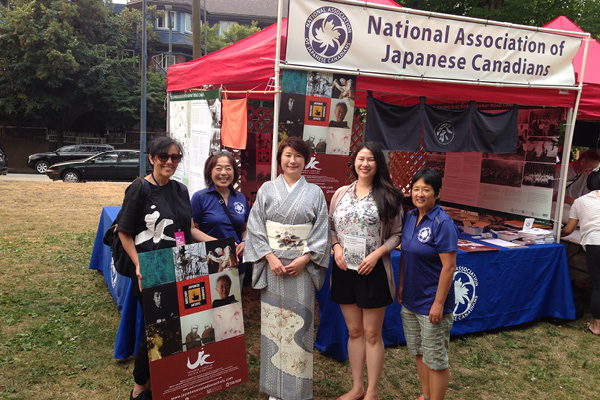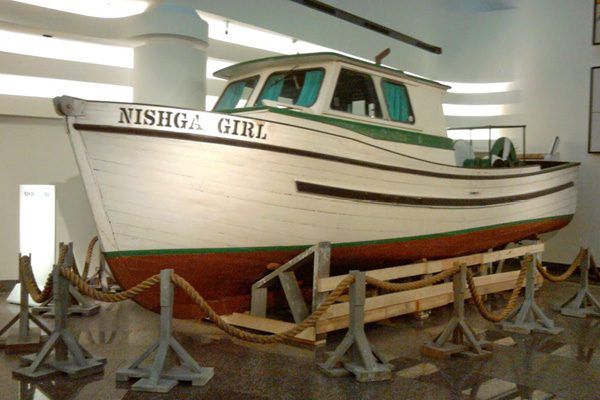A huge thank you to all those who contributed to this year’s Young JC Leaders Conference! We had a wide variety of great conversations, thought provoking perspectives, and above all… a tonne of unforgettable fun!
Special thanks to Alex Miki for sharing a Comprehensive Overview of the Young Leaders perspectives. We’ll be posting more highlights and photos in the coming weeks. Stay tuned!
A particular shout out to local Ottawa organizers Hugo Narumiya, Alex Okuda-Rayfuse, Mana Murata and Midori Kaga, and Young Leaders Committee members Alex Miki, Kiyomi Planidin, Ren Ito, and Jessica Kosonic!
A special thank you to the talented Kayla Isomura for her photography!
JCYLC 2017
Japanese Canadians: Past, Present and Future September 22-24, 2017
Saturday September 23rd
Young Leaders Breakfast Breakout Session
1. What do young leaders hope to get out of the conference?
- To build and rebuild friendships: A network of community and support in order to feel connected to one another and have organic relationships.
- To develop a vision of who we are as a community and a sense of purpose
2. What are current challenges for young leaders?
- There is a current feeling of tension between the older and younger generations where
the youth feel as if their voices are not being heard or are muffled.
- To be able to build an inclusive community: consisting of Japanese Canadians, new immigrants, and non-Japanese. How do we maintain a community when we are spread out across the country?
- There is an external North American view on what our identity should be based on stereotypes. There is a challenge to define what it means to be Japanese Canadian for ourselves and to explore the differences between the Japanese culture and the Japanese Canadian culture.
3. What is the future direction for the NAJC regarding young leaders?
- There is a desire to work with the NAJC and to integrate young leaders into their
conference and have face to face conversations
- Questions regarding how young leaders fit in with the NAJC:
▪ What is our value to the organization?
▪ Does the NAJC want youth involvement?
▪ What role would young leaders play in the NAJC? - A need for mutual respect when bringing forward new ideas.
- A fear that the organization will feel as if young leaders want to take over
- Would new changes to the NAJC’s NEB make it more difficult for youth to become
involved? How would changes impact youth conferences in the future?
NAJC AGM: Dr. John Price
Dr. John Price from the University of Victoria researching how the incarceration of Japanese Canadians happened and the roles that racism and the government played. He highlighted three points from his research:
1. There was a campaign that was planned and organized to influence the idea of internment.
- There was widespread resistance to the incarceration of JCs throughout the country with diverse attitudes towards JCs.
- Lots of letters of support for JCs
2. The B.C. government followed the campaign to incarcerate JCs.
- • The provincial government encouraged the uprooting of JCs and applied pressure to the federal government for mass uprooting.
3. The B.C. government implemented discrimination in order to continue and enforce the campaign and has yet to acknowledge its role in the internment of JCs.
- B.C. government withheld education for JCs
- Prevented JCs to return to B.C. (only 30% eventually returned)
- Used the internment as motivation for political campaigns
Possible external motivation to incarcerated Japanese Canadians even before the war. Registration of Japanese Canadians began before Pearl Harbor.
Despite how much time has passed since the internment, it is never too late to get the acknowledgement from the B.C government for its role it played in pressuring the Federal Government to uproot and intern Japanese Canadians. There is also an ongoing need for current education systems to teach about the history of Japanese Canadians.
NAJC AGM: Future Directions Group Discussions
Small groups were created for roundtable discussion on five different topics/ideas proposed by the Future Directions Team
1. Creation of the “Special Advisor for New Immigrants”
• There is a need for the NAJC to shift their focus in order to serve new Japanese immigrants
2. Have regional conference meetings
- All meeting minutes from local chapters or regional conference meetings should be available online
- All chapters should have access to local projects so that local chapters can help each other’s projects
3. Restructuring of the NEB from 10 to 6 members
- Proposing to no longer have specific committees such as Heritage, Arts, Culture, and Young Leaders but to have special advisors instead
- Special advisors would be on a 1 year term and would create their own working groups. Proposed special advisors would be:
- ACE (Arts, Culture and Education)
- Heritage
- Emerging Leaders
- There would be no specific budget for these advisors but can present proposals for funding
- Emerging leaders would include anyone who wanted to be a leader i.e. New immigrants/families, young leaders, retirees, women, etc.
- Worries were expressed that having one advisor to encompass such a broad spectrum of different areas would result in a concentration of power and a dilution of groups such as young leaders whose voices could get muffled further
- Funding to projects will be dealt out based on priority determined by the NEB
- The staff on the NEB should be reviewed in terms of what their specific roles are
- A call for a review in the bylaws that state that ‘members of the NEB must be of Japanese descent’
4. AGM and conferences to be held every 3-4 years instead of annually
- If conferences are held every 3 years, there will be a loss of the one on one conversations. Suggested possibly every 2 years instead
- To reduce the financial burden of annual conferences, could reach out for sponsorship in order to create even larger conferences. Suggested to appoint someone on the board who would look after sponsorships
Needs to be more relevancy and enticement. Most local chapters don’t have a clear sense of what the NAJC is.
5. Restructuring of membership
- Discussion on what the value of membership is: What do members get and is it enough.
- If conferences are only once every 2 years, will that be enough for members.
- How do you attract new members (ex. Youth) and how to keep current members
NAJC Conference: ‘The Past’ Panel
Panelists discussed finding a new home: Postwar relocation to the East and Japan
- Dr. Henry Shibata’s family was given the option to move East in Canada or go to Japan. His family chose to go back to their home in Hiroshima in hopes of helping survivors of the bombings.
- There was a feeling that the issei lost a lot in terms of property, possessions, sense of identity, however that the nisei gained a Canadian culture.
- Some panelists consider both Canada and Japan to be their home
- Issei wouldn’t mention the internment to their children and although children faced racism at school, there was a reluctance to tell parents due to a fear that they were the ones doing something wrong.
- Some panelists stayed in Canada after the war and families were often given jobs by Jewish families in the neighbourhood
NAJC Conference: ‘The Present’ Panel
Panelists discussed being Japanese and Canadian, each panelist focused on topics such as National identity, Food, Family, Language and Religion.
- General Steven Moritsugu is the highest ranked Japanese Canadian in the Armed Forces. Serves the Canadian Armed forces despite being of Japanese descent and does not feel anyone should receive special treatment nor should they expect special treatment for being different.
- Caroline Ishii is a chef and author who uses food as an interactive tool to bring people together. One project got 100 people to bring 100 ingredients which she turned into a curry which was then shared among the participants. Caroline focuses on vegan food so that she can make something that everyone can enjoy. In group discussions, many families still eat Japanese comfort food and many prepare Japanese food at home
- Lisa Ann Meawasige-Kertesz identified the most with her indigenous roots until she discovered her Japanese family. Still feels somewhat disconnected to her identity.
- Sumi Nakamura is an interpreter who believes language is a good tool to bring people together and aid in communication. The Japanese language is not essential for identity but language does help in understanding and appreciating the culture
- Yoshimichi Ouchi is a minister at the Buddhist temple and is a 25th generation minister in his family. The Buddhist temple also has Odori and community events to bring people together. Encourages anyone to come to the temple regardless of gender, sexual orientation, or ethnicity.
Sunday September 24th
NAJC Conference: ‘The Future’
Garry Watanabe Facilitated collaborative tools for difficult conversations
- Clarity is an important tool in order to ensure that there is a mutual vision
- Talked about different motivations for change: ‘Push and Pull’. Motivations can come from injustices and betrayal such as the push for redress. Can also come from emotions and inspiration.
- The technology and experience doesn’t necessarily have to change but the way in which a story is told or conveyed can be altered in order to elicit an emotion.
- When communicating, should use ‘yes, and” to always add ideas without subtracting.
- Should build off of the ‘third story’ (not your story ‘1st’ or their story ‘2nd ‘) in order to build on a mutual purpose
- It’s easier to refute and reject than to add value
- Always take a step back and make sure you are being clear and everyone is on the same page
- Collaboration requires listening, accepting contributions and to build off of one another
NAJC Conference: Reflections from Ottawa
Remarks from the Young Leaders (YL) and their perspectives of the conference and the future of Japanese Canadian youth:
Throughout the conference, the young leaders from across Canada came together and shared their overall thoughts about what they wanted to get out of the conference. Three key challenges and concerns were brought up among the YLs:
1. Individual identity. We come from varying backgrounds and most of us are only half or even a quarter Japanese, where few know the Japanese language which makes preserving traditions a challenge. Young Japanese Canadians today face a different set of challenges than previous generations; growing up after the internment and post- redress. In North America, being Japanese is considered “cool”, becoming somewhat of a fad, and media puts more pressure on defining who we are based on stereotypes. Many young leaders over the weekend expressed their concern over the challenge of trying to define our identity for ourselves instead of being told what it means to be Japanese Canadian.
2. Intrarelationships between each other and other JC youth. One of the most important points that came up throughout the conference was the need to create a network of young Japanese Canadians and to most importantly, create lasting friendships in order to be connected and support one another. Growing up, there was a sense that there was only a small group of young JC in your city, without knowing that there were so many others around the country. Having the opportunity to attend conferences like these and be able to meet others just like yourself is so important in order to maintain, and grow the future community. A major challenge is that the young leaders today are spread out across the country and need a way to connect face to face and be able to sustain these relationships when in their respective cities. There is also a need to get new young leaders involved and to keep them interested. Overall, young leaders need a safe space where they can share ideas, learn from each other and build new friendships with one another.
3. Interrelationships between YL and other groups. As we build relationships between each other, there is also a challenge to build connections between the older generations as well as the NAJC organization. Learning from the experience and knowledge from the older generation is an important piece in order to pass down and continue traditions. In addition, many questions were raised about the future of young Japanese Canadians and the NAJC. What are the NAJC’s expectations of YL and where do we fit in with the organization? What is our value to the NAJC and what is the value of the NAJC to us? Young leaders expressed their desire to be more involved with the community and to be able to bring new ideas towards the organization but feel like their voices become muffled or diluted. We do not want to just be observers but to be active participants who receive mutual respect and are taken seriously. However, there is a growing fear that the older generation or the organization will feel like we are trying to take over when in reality we just want to help and work together to create a future for everyone.
In conclusion, the Japanese Canadian Young Leaders want to be more involved in their local communities while building connections with each other and across the country. Conferences which bring young JCs together face to face to revisit with old friends as well as to build new friendships are essential and the most effective way in order to grow the community. I encourage for each local chapter to go back and listen to youth groups and offer help in any way they can. It is so important to listen and support new ideas in order to bridge the gap between the old and new generations to create an exciting connected future.
Young Leaders Check ins and group discussions
The young leaders gathered in the afternoon to check in and to get a grasp on how everyone was feeling heading into the end of the conference. YLs had the opportunity to raise any concerns or topics they wanted to discuss and eventually broke off into small group discussions. We reconvened and shared their discussions with the rest of the group.
Check-ins
- Emotions varied near the end of the conference. New participants generally felt overwhelmed at the complexity and tension between the young leaders and the NAJC.
- For YL who had attended previous conferences, there was a somewhat ‘bleak’ feeling that not much progress was made between conferences and that there is a lot of excitement after conferences, but that it dwindles as the year goes on. Therefore, there is the sense that conferences begin in a similar way with the same questions without yielding many answers.
- Some wanted more concrete answers and ideas to bring back to their respective communities to continue the momentum obtained at the conference
Small Group Discussions
- Community involvement: what will encourage new young JCs to get involved in their community? There is a challenge of organizing events and having people come to the events but not getting them to stay and help organize the next event.
- Nationality/identity: How strongly do people identify with their Japanese heritage and how do we form a community which is inclusive to everyone? Our identities are complex and diverse and does that need to be defined or labelled?
- Culture: There tends to be an exclusion of the newer culture from Japan. Needs to be more involvement with new immigrants and incorporate new cultures (differences between Japanese and Japanese Canadian culture). Also, a need to work with other minorities and communities to build healthy relationships
- Education: A need for educational mentorship. Other JC in similar fields to be mentors for the younger generations in order to provide advice in the professional world.
Proposed events/ideas
Locally:
- food lessons which include both older and younger generations
- T ea ceremonies/breakfasts/lunches
- Movie nights
Nationally:
- Short term goal: Regional conferences within the year (prior to JCYLC in Winnipeg 2018) to discuss and create a concrete proposal of our vision, goals, identity, challenges etc. Three regions could be Western (Vancouver), Central (Calgary) and Eastern (Toronto), each would have a meeting to discuss and answer some of the questions/concerns raised throughout this conference. These discussions could be used as a platform to get new young JCs involved and the culmination of these reports could be presented at the next JCYLC.
- Long term goal: Possible future trip to Japan?



